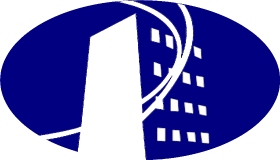Accounting and ERP by City Reach
![]()
"But, I
NEED an upgraded Accounting System that has all of
the features and benefits that will help me continue
to grow my business... Not Having All Of The
Information I NEED Is Killing Me..."
"You And Your People Need To Have A Strong Financial Hold On Your Business And To Use The Numbers Effectively To Build And Grow. Accurate And Enhanced Accounting Features, Benefits And Reports Are Critical For You To Grow And Prosper..."
Solution:
 City
Reach understands that doing business in todays fast
moving and ever evolving world requires fast,
dynamic response to your market conditions and to be
on top of your numbers at all times. The
ability to keep accurate track of your inventory,
your job profitibility, your receivables, your
payables, your people and their benefits/cost and
more... is one of the first major growing pains that
many businees fail to properly recognize and adapt
to.
City
Reach understands that doing business in todays fast
moving and ever evolving world requires fast,
dynamic response to your market conditions and to be
on top of your numbers at all times. The
ability to keep accurate track of your inventory,
your job profitibility, your receivables, your
payables, your people and their benefits/cost and
more... is one of the first major growing pains that
many businees fail to properly recognize and adapt
to.
![]() The
good news is that Advanced ERP/Accounting solutions now include the
ability to get into through cost effective license
rental and hosted solutions. What used to be
overwhelming and cost prohibitive, is now within
reach of Small to Mid Size Busiess without breaking
the bank. Would it not be fantastic to have
Multi-Site inventory, Full HR capabilities,
Purchasing Managment, Receivables Management and
every single advantage that the big guys use against
you?
The
good news is that Advanced ERP/Accounting solutions now include the
ability to get into through cost effective license
rental and hosted solutions. What used to be
overwhelming and cost prohibitive, is now within
reach of Small to Mid Size Busiess without breaking
the bank. Would it not be fantastic to have
Multi-Site inventory, Full HR capabilities,
Purchasing Managment, Receivables Management and
every single advantage that the big guys use against
you?
What is ERP (Enterprise Resource
Planning) or Advanced Accounting?
Enterprise resource planning (ERP) is
business-management software—typically a suite
of integrated applications—that an organization
can use to collect, store, manage and interpret
data from many business activities, including:
product planning, cost
manufacturing
or service delivery
marketing and sales
inventory management
shipping and payment
ERP provides an integrated view of core
business processes, often in real-time, using
common databases maintained by a database
management system. ERP systems track business
resources—cash, raw materials, production
capacity—and the status of business commitments:
orders, purchase orders, and payroll. The
applications that make up the system share data
across various departments (manufacturing,
purchasing, sales, accounting, etc.) that
provide the data. ERP facilitates
information flow between all business functions,
and manages connections to outside stakeholders.
An ERP system covers the following common functional areas. In many ERP systems these are called and grouped together as ERP modules:
Financial accounting: General ledger,
fixed asset, payables including vouchering,
matching and payment, receivables cash
application and collections, cash management,
financial consolidation
Management accounting: Budgeting,
costing, cost management, activity based costing
Human resources: Recruiting, training,
rostering, payroll, benefits, 401K, diversity
management, retirement, separation
Manufacturing: Engineering, bill of
materials, work orders, scheduling, capacity,
workflow management, quality control,
manufacturing process, manufacturing projects,
manufacturing flow, product life cycle
management
Order Processing: Order to cash, order
entry, credit checking, pricing, available to
promise, inventory, shipping, sales analysis and
reporting, sales commissioning.
Supply chain management: Supply chain
planning, supplier scheduling, product
configurator, order to cash, purchasing,
inventory, claim processing, warehousing
(receiving, putaway, picking and packing).
Project management: Project planning,
resource planning, project costing, work
breakdown structure, billing, time and expense,
performance units, activity management
Customer relationship management: Sales
and marketing, commissions, service, customer
contact, call center support — CRM systems are
not always considered part of ERP systems but
rather Business
Support systems (BSS).
Data services : Various "self–service"
interfaces for customers, suppliers and/or
employees
Our ERP and Accounting experts can help you identify what portions of your business can benefit from the adanced financial features and benefits available today.
Our ERP experts can help you know how to benefit your business...
Contact our ERP Specialist at: +1 (561) 609-3300
City Reach ERP
- More Features
- Better Functionality
- More Accurate Numbers
- Better Tools to Work With
Additional Information
Customer Testimonial
“City Reach has provided and their MSP implemented ERP solutions that work for us; and we are ecstatic that our numbers are more complete and we have the information we need to make sound decisions”